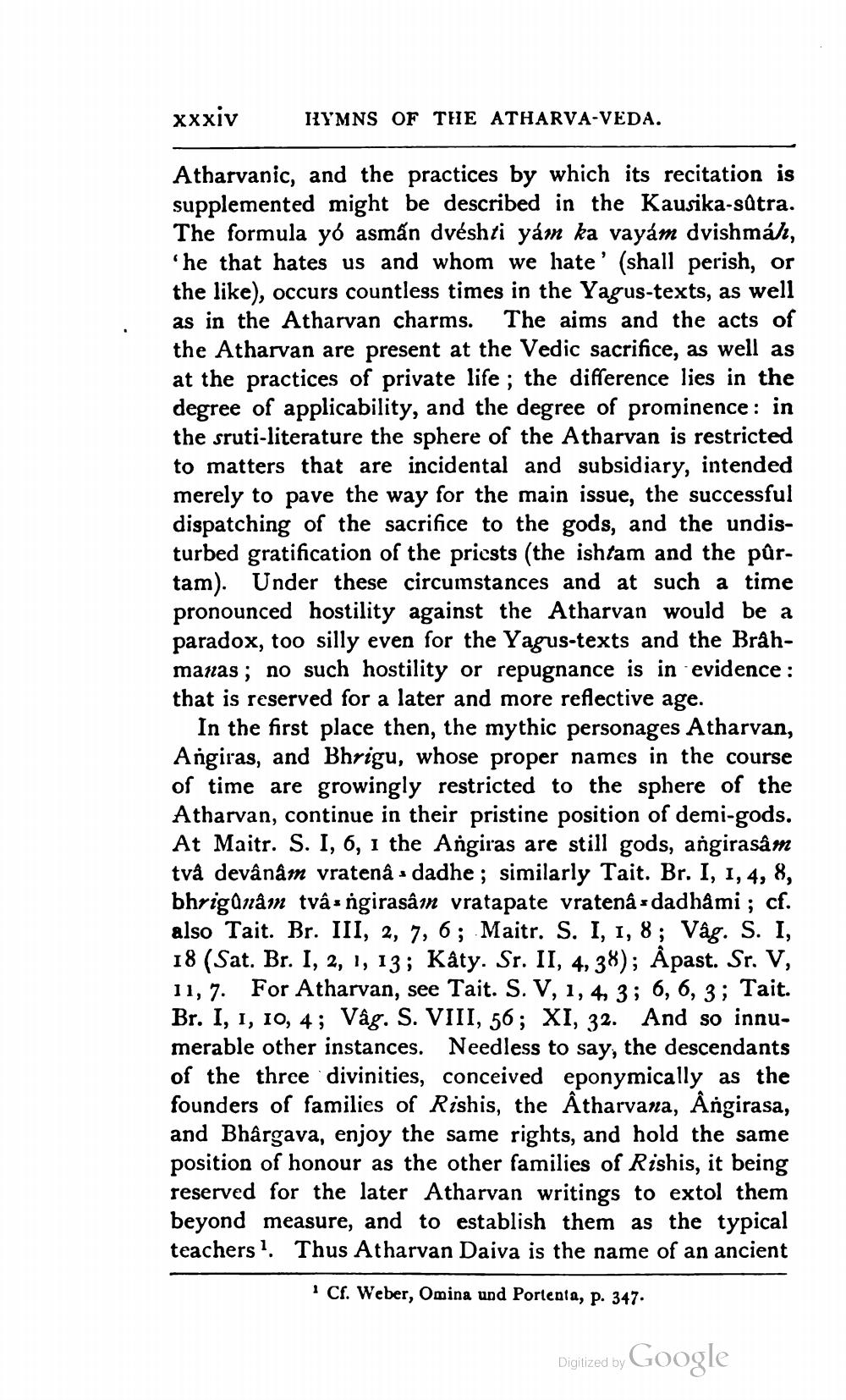________________
xxxiv
HYMNS OF THE ATHARVA-VEDA.
Atharvanic, and the practices by which its recitation is supplemented might be described in the Kausika-satra. The formula yo asmấn dveshti yám ka vayam dvishmál, 'he that hates us and whom we hate' (shall perish, or the like), occurs countless times in the Yagus-texts, as well as in the Atharvan charms. The aims and the acts of the Atharvan are present at the Vedic sacrifice, as well as at the practices of private life; the difference lies in the degree of applicability, and the degree of prominence: in the sruti-literature the sphere of the Atharvan is restricted to matters that are incidental and subsidiary, intended merely to pave the way for the main issue, the successful dispatching of the sacrifice to the gods, and the undisturbed gratification of the pricsts (the ishtam and the pûrtam). Under these circumstances and at such a time pronounced hostility against the Atharvan would be a paradox, too silly even for the Yagus-texts and the Brahmanas; no such hostility or repugnance is in evidence: that is reserved for a later and more reflective age.
In the first place then, the mythic personages Atharvan, Angiras, and Bhrigu, whose proper names in the course of time are growingly restricted to the sphere of the Atharvan, continue in their pristine position of demi-gods. At Maitr. S. I, 6, 1 the Angiras are still gods, angirasâm två devânâm vratenâ - dadhe; similarly Tait. Br. I, 1, 4, 8, bhrigûnâm tvâ: ngirasâmn vratapate vratená s dadhâmi ; cf. also Tait. Br. III, 2, 7, 6; Maitr. S. I, 1, 8; Vâg. S. I, 18 (Sat. Br. I, 2, 1, 13; Kâty. Sr. II, 4,38); Åpast. Sr. V, 11,7. For Atharvan, see Tait. S. V, 1, 4, 3; 6, 6, 3; Tait. Br. I, 1, 10, 4; Vâg. S. VIII, 56; XI, 32. And so innumerable other instances. Needless to say, the descendants of the three divinities, conceived eponymically as the founders of families of Rishis, the Atharvana, Àngirasa, and Bhârgava, enjoy the same rights, and hold the same position of honour as the other families of Rishis, it being reserved for the later Atharvan writings to extol them beyond measure, and to establish them as the typical teachers? Thus Atharvan Daiva is the name of an ancient
i Cf. Weber, Omina und Portenta, p. 347.
Digitized by Google




